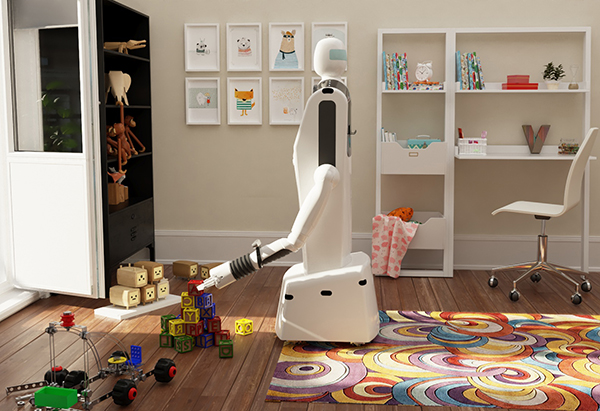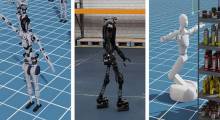Unlimited Robotics Ltd. today announced the launch of its Ra-Ya developer’s platform. The Tel Aviv, Israel-based startup said it enables any software engineer to build robotic applications even without prior experience in hard-coded environments. Unlimited Robotics said that hardware and software applications can be integrated into Gary, its first service robot, which will be available for sale starting next year.
“The process of programming a robotic application is challenging, and it is not that simple for most software developers,” stated Guy Altagar, the company’s CEO. “Unlimited Robotics is democratizing the way people can build applications for robots with the company’s groundbreaking technology.”
“We are empowering software engineers who do not have prior experience in robot programming, especially if they have experience in JavaScript and Python, to actually create pragmatic solutions for people’s homes, businesses, and offices,” he said.
Unlimited Robotics was founded by Guy Altagar, a serial entrepreneur with experience in product marketing; Martin Gordon, chief product officer, who gained experience in software engineering in elite units of the Israeli Defence Forces; and Dr. Eli Kolberg, chief technology officer, who recently led the robotics department in Bar Ilan University.
The company said it has 20 team members, most of whom are engineers and software developers. Unlimited Robotics has a presence in California, Colombia, and Georgia. Its investors include Avishai Abrahamai, founder and CEO of Wix.com, who serves as a board member in the company.
Gary designed for everyday chores
Gary is designed to perform chores in everyday environments, according to Unlimited Robotics. It said its service robot can autonomously navigate and move in familiar and new places indoors, at a speed of up to 1.2m/sec (3.1 mph).
It can also adapt to multiple types of terrains, such as grass, carpets, and tiles. The robot can hold up to 5 kg (11 lb.) of payload with its two arms. Each arm has different gripper to perform tasks such as grabbing, holding, and squeezing objects.
Gary is also equipped with three different infrared and in-depth cameras to improve its performance due to the extremely high processor and AI capabilities, said Unlimited Robotics.
“Usually, a standard robot or an electronic device can perform only one function,” said Altagar. “With our technology, we are bringing a new way to build several mechanical and operational applications—all in one device.”
“Imagine how much impact developers can now have on people’s lives and make them easier and better,” he added. “We can bring great number of mechanical solutions through software for people with disabilities, young parents, hotel and restaurant owners, nurses and doctors, and more. All of the solutions are integrated on one device, which makes it more effective and easier to operate.”
Ra-Ya intended to surpass dancing robots
Today, most robots are used in logistics, warehouses, and factories, observed Unlimited Robotics. Humanoid and legged robots continue to garner interest, with Elon Musk recently announcing Tesla plans to release a Tesla Bot. In addition, Hyundai acquired Boston Dynamics, which has begun commercializing its Spot robotic dog, for $1.1 billion.
Unlimited Robotics said its team hopes that its open-source platform will enable any developer who has an idea to build an app on it. The company expects that the product will do more than dance and look impressive, providing next-level solutions for home and business owners.
The beta version of Ra-Ya is free, and developers can integrate and offer their applications to Gary’s customers or users through paid or free monthly subscriptions. Unlimited Robotics also said that its robots include network interconnectivity.
“One robot teaches the other robots how to improve in their next task,” said Altagar. Unlimited Robotics has opened a waiting list for Gary for a one-time fee of $99. The company plans to sell Gary on a monthly subscription basis.
In addition, Unlimited Robotics said it will accept Bitcoin, Dogecoin, and Ethereum, claiming it will be the first company in the industry to accept cryptocurrencies for its products.
Article topics
Email Sign Up
















